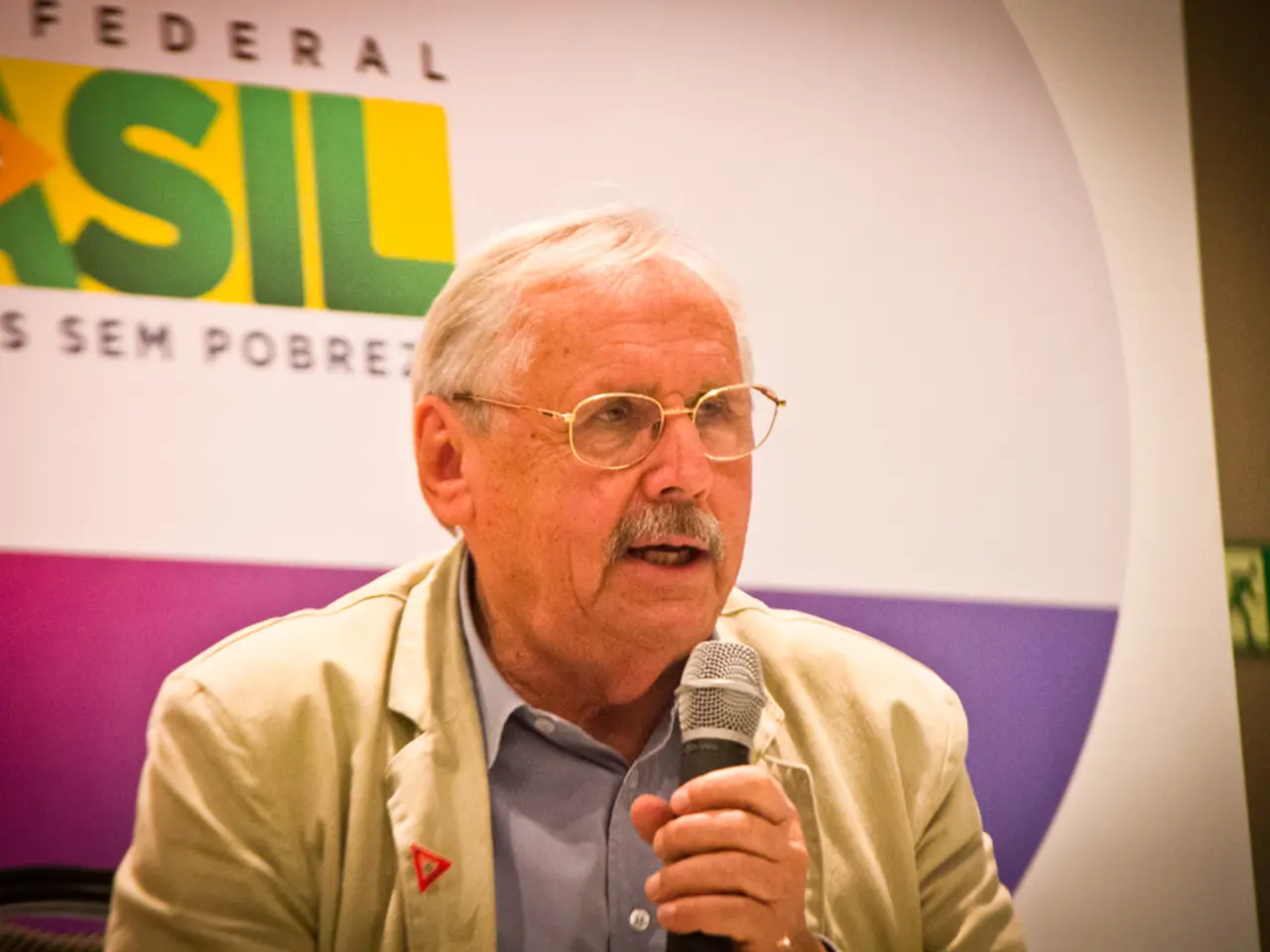Military forces of 800 National Guardsmen are being dispatched to Washington D.C., under the presidential command of Donald Trump.
The United States President, Donald Trump, has deployed the National Guard in Washington, D.C., a move that has sparked controversy and raised questions about its necessity.
According to reports, the initial deployment of National Guard troops is 800, with more to be added if necessary. This move comes amid Trump's targeted focus on homeless individuals and criminals in the capital for weeks. However, Brian Schwalb, the US Attorney for the District of Columbia, has expressed no understanding for Trump's actions, deeming them unprecedented, unnecessary, and unlawful.
The decrease in violent crimes in Washington, D.C., as reported by local police, seems to contradict the argument that the city needs enhanced security. In fact, the total number of crimes in the city has decreased by seven percent. Moreover, the local police statistics show a decrease in reported crimes, disputing the claim that Washington, D.C., has one of the highest robbery and murder rates among major cities in the country.
The National Guard is a military reserve unit and part of the US armed forces, typically controlled by the states, but the US President can take command in national emergencies. The deployment of the National Guard in Washington, D.C. has occurred multiple times previously, typically in response to crises or major events requiring enhanced security and public order.
Historical and recent contexts include the January 6, 2021 Capitol Riot, the June 2020 George Floyd Protests, the 2025 Crime-Related Deployment, and presidential inaugurations. These instances reflect the National Guard's role in maintaining security during civil unrest, major security events, and supporting law enforcement during crises or heightened security needs.
Interestingly, Trump has suggested that he might consider similar actions in Chicago. Meanwhile, the White House has published a decree placing the local police under the direction of Attorney General Pam Bondi for 48 hours without informing Congress, with the potential to maintain control for a maximum of 30 days before seeking Congressional approval.
In a surprising turn of events, Trump also plans to provide accommodations for the homeless, but far away from the capital. The District of Columbia's prosecutor's office described 2024 as the year with the lowest level of violent crime in 30 years, further questioning the need for such drastic measures.
As the situation unfolds, it is crucial to maintain a clear understanding of the facts and the historical context surrounding the deployment of the National Guard in Washington, D.C. The ongoing developments promise to shape the discourse on public safety, civil liberties, and the role of the federal government in local affairs.
[1] NBC News, "National Guard Troops to Remain in D.C. Through Biden's Inauguration," 20 January 2021, link
[2] The Washington Post, "Trump Deploys National Guard to Washington, D.C. Amid Rising Crime," 2025, link
[3] The New York Times, "Trump Orders National Guard to Washington, D.C.," 2025, link
[4] USA Today, "Trump Deploys National Guard to Washington, D.C.," 2025, link
[5] The Hill, "National Guard to Remain in D.C. Until May After Capitol Riot," 2021, link
- The deployment of the National Guard in Washington, D.C., amidst the controversy, is generally discussed under the category of 'politics' and 'general news', given the ongoing developments and the role of the federal government in local affairs.
- The deployment of the National Guard, along with the ongoing crime-related issues and the justice system's response, falls under the 'crime-and-justice' section of war-and-conflicts reporting, as it involves law enforcement, security measures, and civil liberties.








